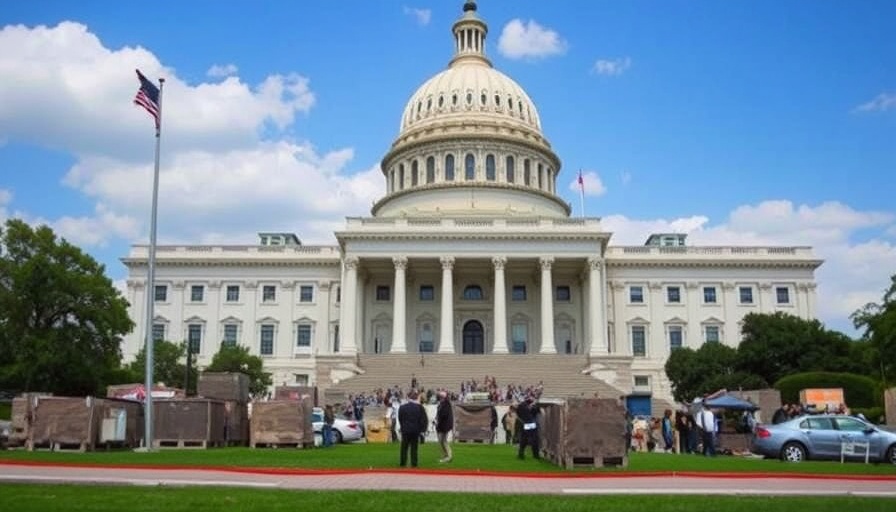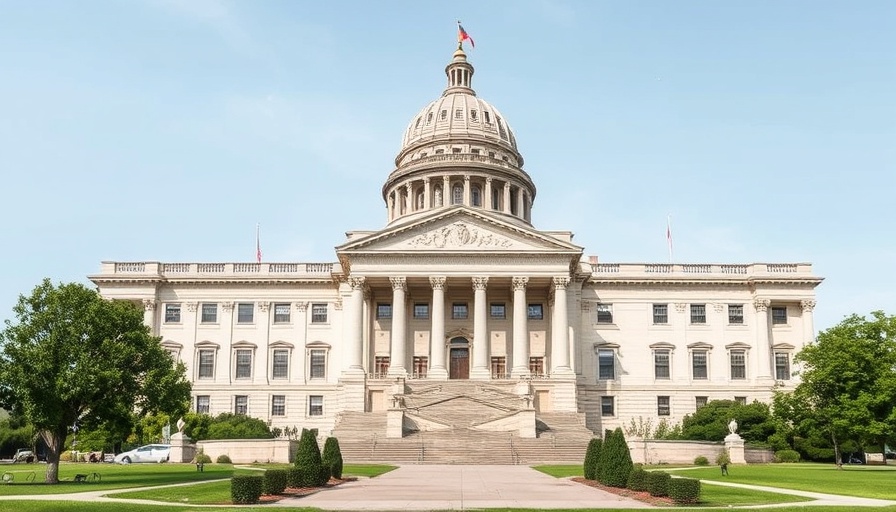
The Ongoing Challenges of FEMA: Understanding the Legislative Landscape
The Federal Emergency Management Agency (FEMA) has been at the center of a growing controversy, with many lawmakers frustrated over the agency's response to recent disasters. This sentiment has sparked discussions on finding a bipartisan path forward to ensure that FEMA can better serve communities in need.
Why is FEMA Facing Criticism?
Over the years, FEMA has been criticized for its slow response to disasters, inadequate funding, and bureaucracy that often delays relief efforts. This has left many homeowners wondering whether they can rely on the government when their homes are devastated by floods, hurricanes, or wildfires. Recent hearings have brought these issues to light, highlighting how families often endure prolonged suffering while waiting for aid.
A Bipartisan Effort: Could It Be the Solution?
Despite the friction, there's a glimmer of hope. Lawmakers from both parties are acknowledging the need for a cooperative approach to reforming FEMA. They recognize that efficient disaster recovery is not just a political issue; it is fundamentally about protecting American lives and homes. This awakening may pave the way for new legislation that will streamline processes and improve resource allocation.
Real-Life Impacts: Stories from Struggling Homeowners
To understand the urgency behind these discussions, consider the stories of homeowners who have faced the brunt of FEMA's shortcomings. For instance, after Hurricane Laura hit Louisiana, many families reported months-long delays in receiving aid. One family described themselves as living in a state of limbo, unable to rebuild their home and lives. Their story is just one of many that have surfaced during these discussions, illustrating why timely and efficient FEMA aid is critical.
Future Predictions: Opportunities for Reform
Looking forward, there is potential for legislative changes that may strengthen FEMA’s operational capacity. Some lawmakers are advocating for a comprehensive review of the law that governs FEMA, suggesting it integrate more modern technologies and data analysis tools. These changes could expedite aid distribution and improve overall response time. Furthermore, as communities continue to face increasingly severe climate events, adapting FEMA’s framework to address these challenges has never been more critical.
Empowering Homeowners Through Information
For homeowners, understanding FEMA’s processes is crucial. Awareness of how to navigate applications for assistance or to appeal for necessary aid can significantly affect outcomes. Equipping yourself with knowledge about eligibility criteria and the appeals process can empower you to take an active role in ensuring your home recovery is prioritized.
Next Steps: How You Can Get Involved
As discussions on FEMA’s future unfold, it’s important for homeowners and contractors alike to engage with their representatives. Acquaint yourself with the current initiatives being proposed at the state and national levels by attending town hall meetings or reaching out through social media. Your voice can contribute to shaping a more responsive FEMA that recognizes the needs of all communities.
Conclusion: The Path Ahead for FEMA and Homeowners
The road to reforming FEMA is complex, but it is paved with opportunities for renewal and improvement. As bipartisan efforts continue, one can hope that both lawmakers and communities will come together to ensure that the agency's future aligns to better serve the American public. Staying informed and engaging in advocacy can empower us all to contribute to this critical issue.
 Add Row
Add Row  Add
Add 






Write A Comment